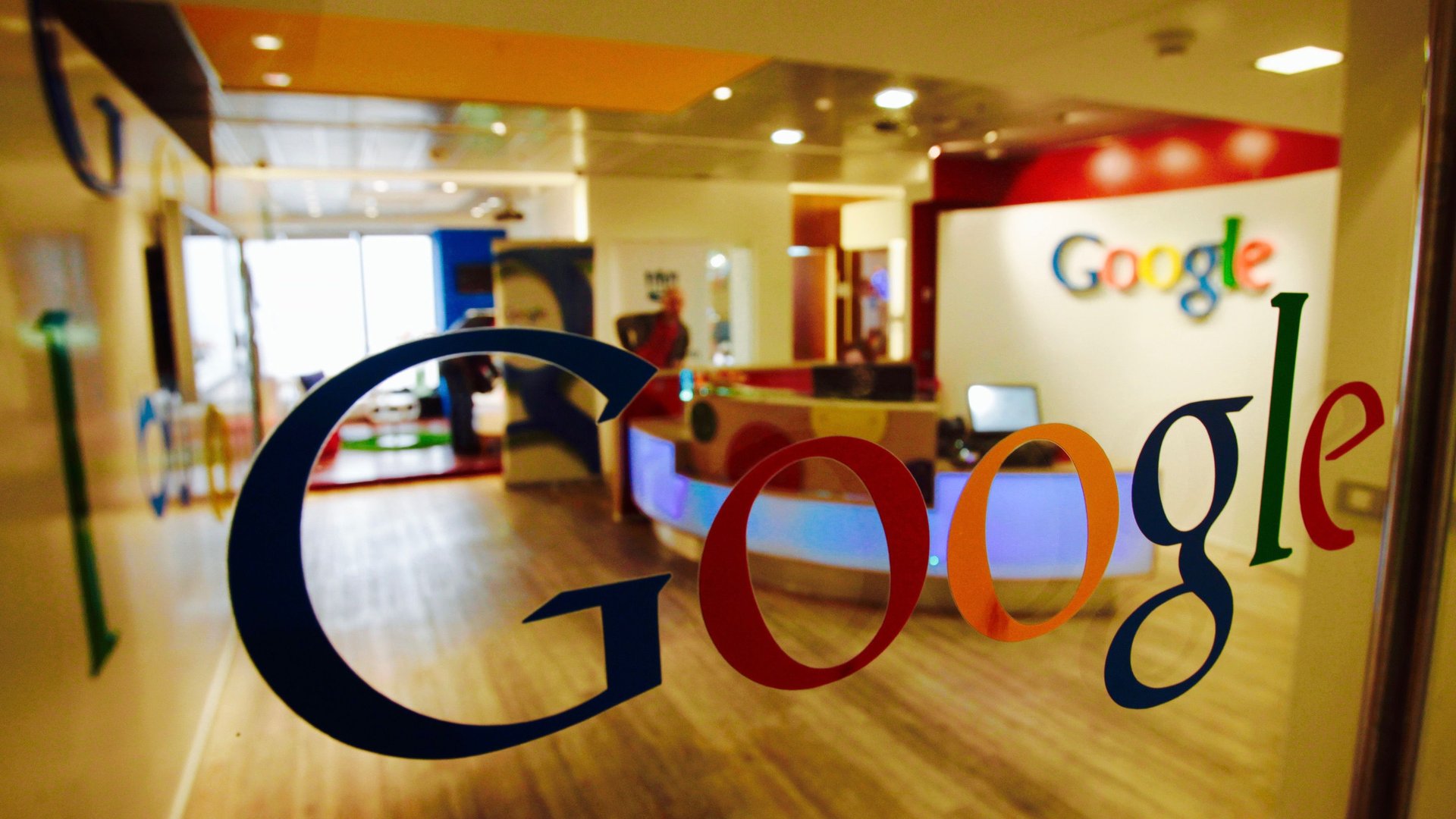With Facebook distracted, Google is going on the offensive
As Facebook’s top brass holed up yesterday to deal with the fallout from data privacy revelations that erased more than $50 billion in market value in two day, its top rival, Google, was addressing the two companies’ biggest clientele: the advertising industry.


As Facebook’s top brass holed up yesterday to deal with the fallout from data privacy revelations that erased more than $50 billion in market value in two day, its top rival, Google, was addressing the two companies’ biggest clientele: the advertising industry.
“We hear you,” Matt Brittin, Google’s EMEA head, told a packed auditorium at Advertising Week Europe, in a presentation entitled, “Advertising that works for everyone.” “We hear you when you say you want transparency, you want safety, you want fraud protection… We hear you loud and clear.”
The search giant—which commands close to a third of annual digital advertising revenue worldwide—is trying to reassure advertisers who have fretted over brand safety and transparency, while competitors like Amazon and Snapchat nibble at its piece of the pie. Facebook’s distraction could be an opportunity for Google to take an even bigger chunk for itself.
Facebook hasn’t been innovating its ad models
Advertisers and agencies who spoke to Quartz said the scandal over Facebook data usage by Cambridge Analytica in Donald Trump’s presidential campaign wasn’t cause to slash spending yet. But some said they wouldn’t increase budgets for Facebook either—even before the news broke.
The social network hasn’t been innovating its ad models as much as its rivals. And its traffic numbers leave a lot to be desired. Facebook’s user growth slowed more than expected last quarter, and users on the site spent tens of millions of hours fewer with the social-media network each day.
“That’s not exactly appealing to a Fortune 500 or Fortune 100 company who spends a lot of money with you,” said Michael Bertini at the digital marketing firm iQuanti, who had a client recently pull back on much of its Facebook spending. “They think, ‘Well, I could go spend that money with remarketing campaigns, I could spend that money more on Google, I could spend that money on YouTube.’ “
Google has been introducing new ad units; it announced a new program this week that allows retailers to list their products on Google’s sponsored Shopping space and other platforms, and last month it launched a tool that uses machine learning to place ads, to name two recent examples. It launched an ad filter for its Chrome browser earlier this year that blocks ads that don’t meet the standards set by an industry trade group it works with. The company also said it removed 3.2 billion bad ads in 2017.
Google is more transparent
The Ad Week presentation touted Google’s efforts to be more transparent with people about the data it collects and uses, combat bad ads online, and rid the site of offensive content with more human review and machine learning.
A year ago, at the same event, Google, like Facebook today, was apologizing to brands after ads appeared in content that was extremist or offensive. It also faced a backlash after videos appearing to exploit children slipped passed its filters on YouTube, inappropriate videos appeared on YouTube Kids (paywall), and, more recently, conspiracy videos targeting survivors of the Parkland school shooting appeared in YouTube’s Trending page.
Google said it’s hiring more human moderators to address these issues, and using machine learning to flag more content, among other efforts. Google also pledged to have real people verify every video in the Google Preferred program that includes the top 5% of channels on YouTube that are safe for advertisers—a process it says has been completed in the UK and aims to complete in other countries within the next two weeks.
On Tuesday, Google announced new efforts aimed at publishers, some of which have felt spurned by Facebook’s recent algorithm changes. It released Subscribe with Google, which people can use to sign up for news subscriptions through Google. (Facebook is testing subscription features as well.) Bloomberg reported that publishers would keep 85-90% of revenue when readers first buy subscriptions through the program, as opposed to the 70% they earned through subscriptions via the Google Play Store. And it announced at $300 million initiative to fund “quality journalism” projects over the next three years.
Of course, Facebook still has a massive audience of more than 2.2 billion monthly active users that many marketers can’t ignore. But the distraction over data privacy could thwart the company from innovating and growing its audience, pushing digital advertisers into other arms.
“It’s got an opportunity to address some issues that were there before all this,” said Kyle Bunch, managing director of social at R/GA. “But if it’s continuing down the road of what’s the least that we can do to help this go away, it feels like we could definitely start to see a more tangible shift to other advertising platforms.”